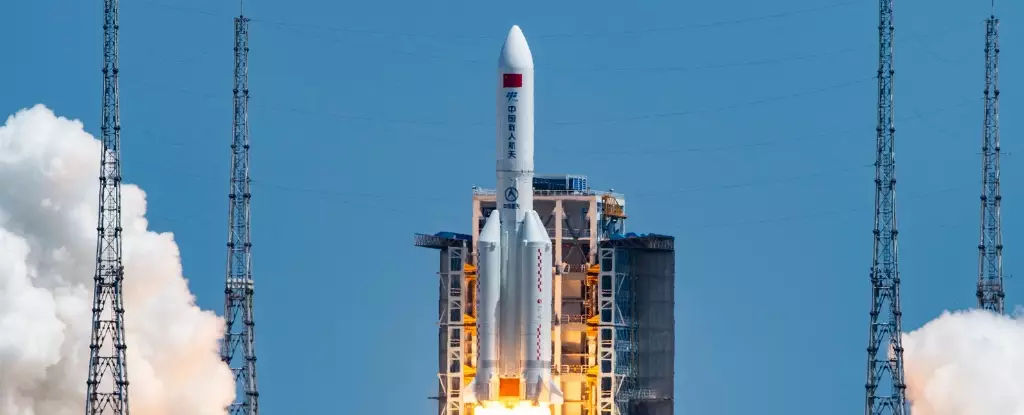In a bold move to rival Elon Musk’s Starlink, a Chinese state-backed company known as Shanghai Spacecom Satellite Technology has launched its first 18 satellites. This marks the beginning of their ambitious plan to build a vast orbital network, dubbed the “Thousand Sails Constellation,” which aims to eventually consist of 15,000 Low Earth Orbit satellites by the year 2030.
Competition in the Satellite Industry
The Thousand Sails Constellation is considered China’s answer to Starlink, which currently has around 6,000 satellites in orbit, with plans to expand to 42,000 satellites in the future. This initiative is just one of three major satellite networks planned in China, each expected to deploy 10,000 or more satellites. These satellites will orbit between 200 and 1,200 miles above the Earth’s surface, similar to the positioning of Starlink satellites.
The Chinese government has been actively pushing for advancements in science and technology, particularly in the space industry. By involving the private sector in these projects, China aims to develop self-reliant industries that are less susceptible to foreign influence or potential conflicts. Shanghai Spacecom Satellite Technology, backed by the Shanghai municipal government, has also received funding from private investors and state-owned enterprises for their ambitious satellite network project.
In addition to the Thousand Sails Constellation, two other major satellite networks are set to launch in China. China SpaceSat, a state-owned contractor, is planning to deploy 13,000 satellites as part of its Guowang (National Network) constellation. Meanwhile, commercial manufacturer Landray Hongqing is working on the Crane-3 constellation, which is expected to have 10,000 satellites in orbit. With all three projects combined, China is set to have a significant presence in the satellite industry, aiming to provide internet services and drive technological advancements.
Growth and Potential of the Chinese Space Industry
The Chinese space industry is projected to grow significantly, with estimates suggesting it will be worth $321 billion by 2024. This growth is reflected in the performance of commercial aerospace stocks, which saw a surge in prices following the recent satellite launch by Shanghai Spacecom Satellite Technology. The potential of the Chinese space industry to compete on a global scale is becoming increasingly evident, with ambitious projects and government support driving innovation and growth in the sector.


Leave a Reply